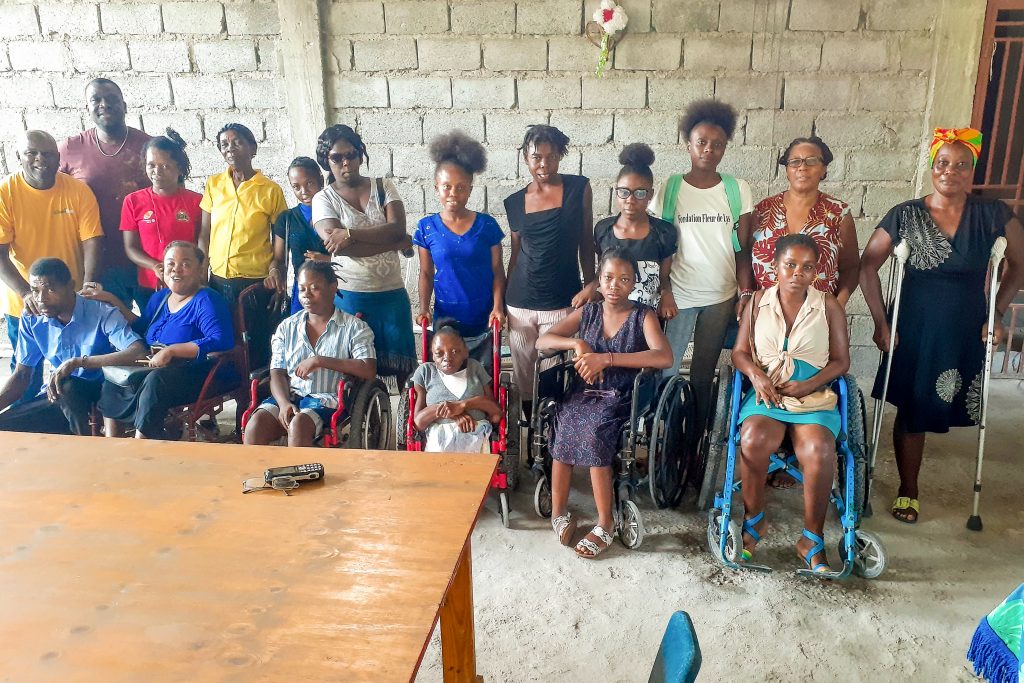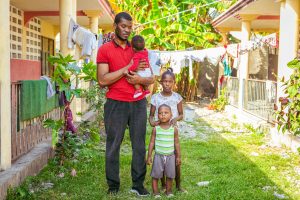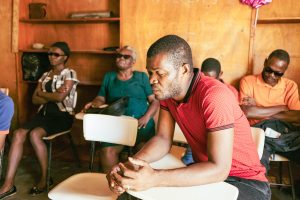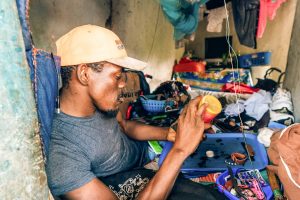
Unlocking potential: earning a living with a disability in Haiti
Dumel Fontaine is a husband and father of three living in Les Cayes, Haiti. He’s always been committed to providing for his family—yet as someone without sight, he’s also almost always been barred from doing so. “My situation was … very catastrophic because I didn’t have a job until now,” he says. “There wasn’t enough clothing and food.”
For Dumel, unemployment isn’t due to a lack of desire to work but to social dynamics—people don’t want to hire him, as someone who has lost sight, and he often experiences disdain from others. “The community doesn’t look favorably on us because we’re people with reduced mobility,” he explains. “They think we’re hopeless and lifeless.”
Unfortunately, Dumel’s experience isn’t unique; it’s reflective of the stories of thousands of people across Haiti.
The underserved of the underserved
It can sometimes be easy to paint “poverty” with one brush, viewing it as a single category. However, the reality is that there are layers to poverty: Some families live just under the poverty line, some live in extreme poverty, and some live in between.
In Haiti, political turmoil, natural disasters, and economic instability make everyday life extremely challenging, with about 79.7% of households living below the international poverty line ($5.50 per day). But as a 2021 World Bank report revealed, the poverty rate skyrockets to 88.4% in households in which at least one member has a disability. People with disabilities are more likely to be excluded from the labor market, with over three quarters saying that they’re unable to work due to their disability. And 70% cannot read or write (compared to 38% in the general population).
Rather than receiving additional support to overcome these barriers, people with disabilities are often neglected and stigmatized by society at large, and even by their own families.
In Haiti, people with disabilities are one of the most underserved groups in the country.
Matching potential with opportunity
While the context is challenging, the Church in Haiti has a desire to make a difference. In 2022, HOPE Haiti began training our church partners in south Haiti to start savings groups to serve men and women with disabilities.
So far, our partners have helped form five groups to serve a total of 80 men and women. Together, members meet weekly to study Scripture, encourage one another, pray, and pool their funds. They can also make small loans, enabling group members to start or expand a business, to access emergency funds to fall back on, or to cover large expenses, like school fees.
Dumel joined Etwal (“star”) savings group earlier this year. “Listening to the presentation of the savings group project, we thought it was a very good idea that would enable us to progress economically as people with reduced mobility,” he says, adding, “I was thinking that this group is very important because it is based on God’s word.”
Six months into his group membership, Dumel says, “Belonging to the savings group has a big impact on my spiritual life because in the group, we pray and meditate. … I feel like I belong to a new family.” However, economic challenges remain: “My membership of the savings group hasn’t yet transformed [my] family—but we’re optimistic that it could contribute to something.”
Pierre Luthan also lives in Les Cayes. Each day, he’s spent hours in his workshop, creating both beautiful artwork and practical items like sandals to sell.
“I come from a community with people with disabilities,” Pierre relates. “Most of the time, we are exploited by structures. We are scammed at every turn.” After accepting an invitation from HOPE’s partner to join Lumiere (“light”) savings group in 2022, though, he says he’s found acceptance, safety, and a way to grow his business.
“Before, I was just a person with a disability with less friends and support. Now, I have so many friends, so much support,” he says. “Just by being a member, I feel closer to others—I feel loved, integrated in society.”
Pierre shares that he plans to take a loan to buy supplies to make more goods to sell, adding, “Since I joined this group, my family lives with hope. We know that anytime we want to, we can [take out] a loan. My family feels more secure in life because they know they are safe from misery.”
If you would like to learn more about how you can join us in providing family-sustaining financial opportunities and confidence-building relationships to men and women in underserved communities, please contact Kirstin at projectmanager@homes4hope.org.



